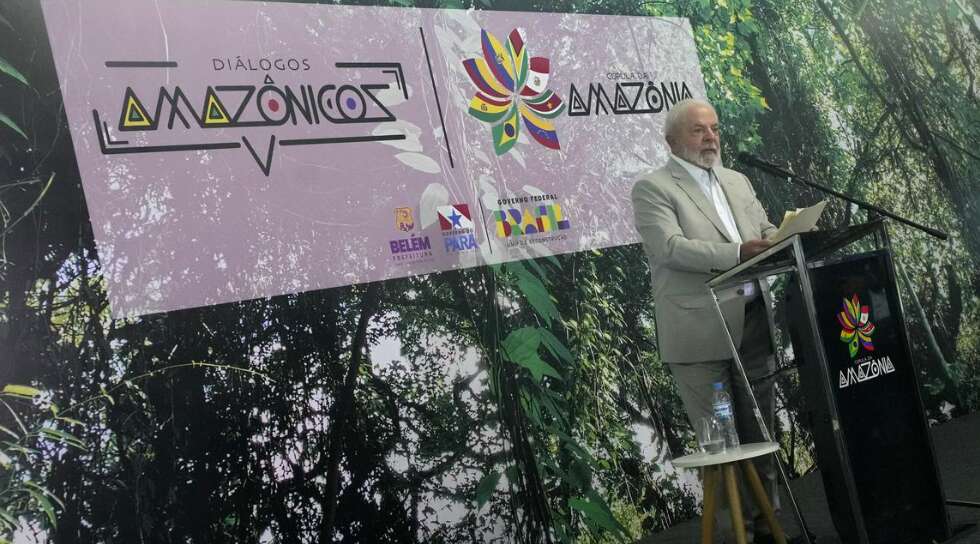Disappointed Environmentalists Criticize Lack of Commitments at Amazon Summit, But Leaders Celebrate Indigenous Demands
The recent Amazon Summit in Brazil left environmentalists disappointed with the lack of concrete commitments to end deforestation, but praised for acknowledging indigenous rights and demanding more climate funding from developed nations. The summit highlighted the importance of the Amazon in addressing climate change and called for increased regional cooperation and global recognition.
The recent Amazon Summit in Brazil concluded on August 9, leaving some environmentalists disappointed with the lack of concrete commitments to end deforestation.
While the leaders and ministers from eight Amazon nations signed a declaration that aimed to drive economic development while preventing the ongoing demise of the Amazon, several environmental groups criticized the lack of measurable goals and timeframes.
The declaration, however, was praised by others, and the inclusion of two main demands from the Amazon’s umbrella organization of Indigenous groups was celebrated.
The summit attracted high-level representatives from countries such as the Republic of Congo, the Democratic Republic of Congo, Indonesia, France, and Norway. The representatives signed a similar agreement, which mainly condemned developed nations for failing to provide promised climate financing.
The eight nations attending the summit - Bolivia, Brazil, Colombia, Ecuador, Guyana, Peru, Suriname, and Venezuela - are members of the newly revived Amazon Cooperation Treaty Organization (ACTO). They hope that this united front will give them a major voice in global environment talks and discussions leading up to the COP 28 climate conference in November.
The summit served as a platform for Brazilian President Luiz Inácio Lula da Silva to leverage global concern for the preservation of the Amazon. President Lula has been seeking international financial support for forest protection, highlighting the need for developed nations to fulfill their pledges to provide monetary support.
He emphasized the importance of nature and the need to revive what has been ruined by industrial development. While all Amazon countries have ratified the Paris climate accord, cross-border cooperation has historically been limited due to low trust, ideological differences, and the lack of government presence. Forest protection commitments have been uneven, and the joint declaration at the summit did not include a shared commitment to zero deforestation by 2030, which some had hoped for.
However, Brazil and Colombia have already made that commitment individually. Environmental groups such as the Climate Observatory, Greenpeace, and The Nature Conservancy criticized the lack of detailed pledges in the declaration, stating that it did not offer practical solutions or a calendar of actions.
They recognized that the Amazon is reaching a point of no return but called for more tangible measures to avoid further damage. Indigenous leader Fany Kuiru praised the declaration for acknowledging the rights to traditional territories and establishing a mechanism for the formal participation of Indigenous peoples within ACTO. The summit also shed light on the priorities of Brazil's government, including its stance on oil exploration.
Despite the push for Amazon preservation, concerns were raised about the potential hypocrisy of pursuing oil, equating it to betting on death and destroying life. The state-run Petrobras company has been seeking to explore for oil near the mouth of the Amazon River. Despite the disagreements and ambiguities, there were signs of increased regional cooperation and growing global recognition of the Amazon's importance in addressing climate change.
Leaders emphasized the need for a collective voice and more financial support for ACTO to represent the region on the global stage. Anders Haug Larsen, the head of international advocacy at Rainforest Foundation Norway, commended the Amazonian nations for demanding more money from developed nations and viewed their political will to protect the rainforest as a historic opportunity.
This summit, along with continuous efforts to reduce deforestation, provides an opportunity for the international community to invest in the Amazon's preservation and allocate climate funding accordingly. With the Amazon representing an area twice the size of India and playing a crucial role in mitigating climate change, it is crucial for nations to collectively take action and protect this vital ecosystem.




